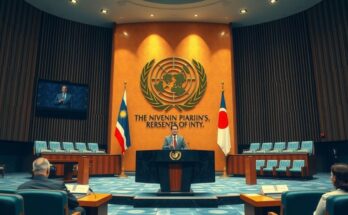In January 2025, Thailand embarked on a pivotal journey as it joined the United Nations Human Rights Council for a three-year term. Human rights organisations implore the Thai government to fulfil its promises by initiating comprehensive constitutional reform to uphold human rights domestically. The Council, with its 47 members, stands as a beacon for global human rights standards, demanding exemplary conduct from its members.
Throughout its candidacy, Thailand made significant commitments to protect and promote human rights. These included the revision of local laws to align with international standards and fostering a constructive dialogue with civil society. As Thailand secures its seat on the Council, it is essential for the government to transform these pledges into tangible actions.
However, the current Thai Constitution acts as a major obstacle, hindering the advancement of human rights. Drafted without proper oversight, it effectively legitimises the military junta’s imposition and undermines democratic governance. The Constitution’s framework allows an unelected Senate to obstruct reforms, ensuring that the remnants of past regimes continue to influence political life, rendering the electorate’s vote almost inconsequential.
Under the current constitutional structure, violations of free expression and assembly rights flourish, justified by broad definitions of national security concerns. The notorious lèse-majesté law imposes severe penalties for perceived insults to the monarchy, often wielded against critics, including journalists and activists. This law has become entrenched in the Constitution, inflicting significant harm under the cloak of legitimacy, with 276 individuals charged merely for exercising their rights since late 2020.
The Pheu Thai Party, leading the current government coalition, has voiced intentions to draft a new constitution yet remains lackadaisical in actualising this promise. As Thailand takes its place on the UN Human Rights Council, various organisations call for concrete actions to manifest the country’s dedication to human rights. This includes ensuring the new constitution adheres to international standards, allowing the populace to elect a drafting committee, and maintaining open dialogue involving diverse perspectives.
Furthermore, it is crucial to guarantee that no topics are excluded during the drafting process and to liberate individuals wrongfully charged for their peaceful expressions. The hope is that the Thai government will engage earnestly with these demands and take constructive steps to redress domestic human rights issues, signalling a newfound respect for its citizenry.
Thailand commenced a three-year term on the UN Human Rights Council in January 2025, urging the government to commit to human rights reforms. Key calls for constitutional changes include revising local laws, engaging civil society, and ensuring open dialogue during drafting processes. The current Constitution impedes democratic progress and enables rights violations, particularly through laws like lèse-majesté. The Pheu Thai Party’s promises for reform must translate into concrete actions to liberate repressed voices and follow through on commitments to uphold human rights.
As Thailand begins its term on the UN Human Rights Council, the call for meaningful constitutional reforms is urgent and clear. The enduring influence of an outdated Constitution and the pervasive laws curtailing freedoms stand contrary to Thailand’s commitments. By pursuing a genuine overhaul of constitutional provisions, the government can foster a new era of democracy and human rights protection, aligning with global standards and invigorating the voices of its people. The path forward must be inclusive and transformative, not just a matter of political expedience.
Original Source: www.article19.org



